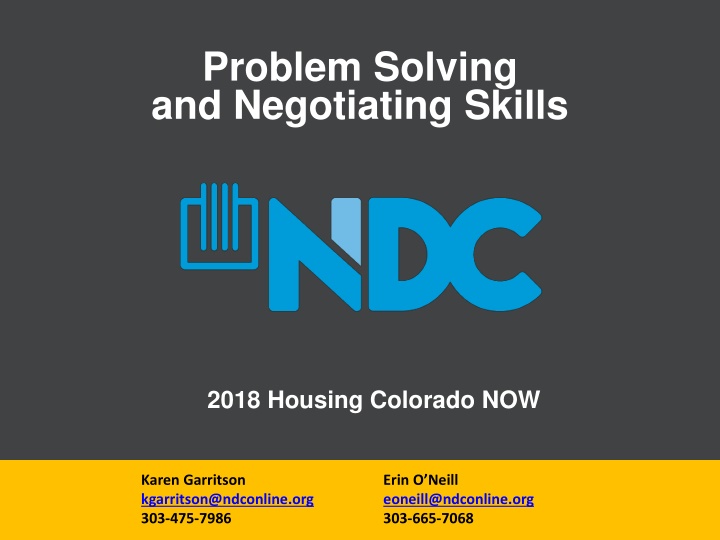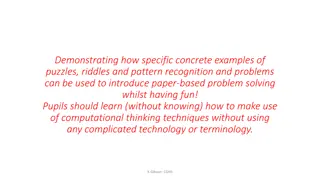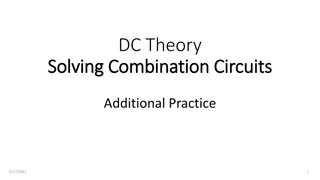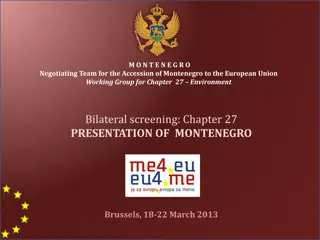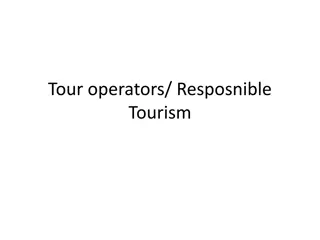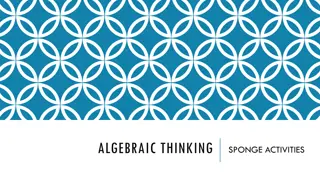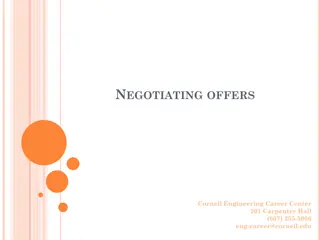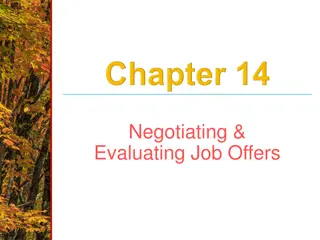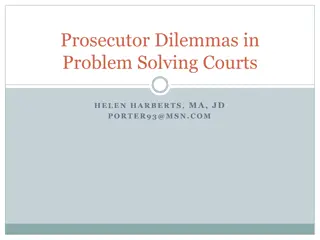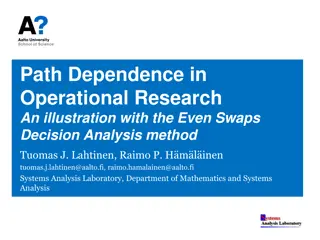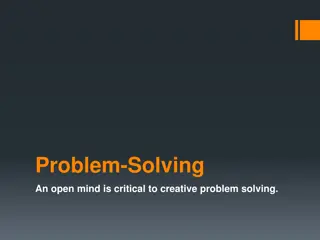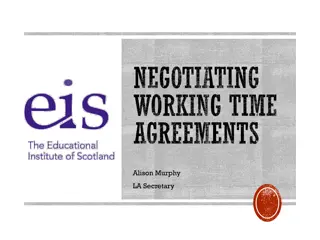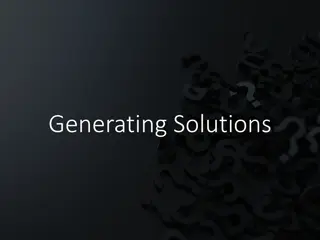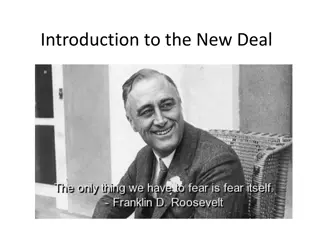Enhancing Problem-Solving and Negotiating Skills in Deal Structuring
Today's learning objectives focus on recognizing financial and non-financial aspects of problems, negotiating effectively in deals, and creating win-win solutions. Successful deal structuring involves understanding both financial and non-financial factors. The art of problem-solving lies in using financial analysis and participant needs to negotiate a satisfactory deal structure. The problem-solving process emphasizes defining problems, identifying outcomes, evaluating players, formulating solutions, building consensus, and implementing actions.
Download Presentation

Please find below an Image/Link to download the presentation.
The content on the website is provided AS IS for your information and personal use only. It may not be sold, licensed, or shared on other websites without obtaining consent from the author.If you encounter any issues during the download, it is possible that the publisher has removed the file from their server.
You are allowed to download the files provided on this website for personal or commercial use, subject to the condition that they are used lawfully. All files are the property of their respective owners.
The content on the website is provided AS IS for your information and personal use only. It may not be sold, licensed, or shared on other websites without obtaining consent from the author.
E N D
Presentation Transcript
Problem Solving and Negotiating Skills 2018 Housing Colorado NOW Karen Garritson kgarritson@ndconline.org 303-475-7986 Erin O Neill eoneill@ndconline.org 303-665-7068
Todays Learning Objectives Today s Learning Objectives How to recognize financial and non-financial aspects of a problem How to negotiate more effectively with other deal participants How to create options and alternatives that lead to win-win solutions 2
The Art of The Art of Problem Solving, Deal Problem Solving, Deal Structuring and Negotiation Structuring and Negotiation Successful deal structuring is not just numbers. Deals are made by people. People are motivated by factors other than money. Deal structuring has two equal parts: science and art Financial factors (science) Non-financial factors (art) Both financial and non-financial factors need to be successfully addressed for a deal to go forward 3
The Art of The Art of Problem Solving, Deal Problem Solving, Deal Structuring and Negotiation Structuring and Negotiation Uses the information generated by financial analysis, plus an understanding of the needs of the deal participants, to negotiate a deal structure satisfactory to all the participants Understand the needs of the deal participants Use your financial analysis techniques Set aside the personalities of participants Negotiate a deal structure that is satisfactory to all of the participants 4
The Problem Solving Process The Problem Solving Process Step 1: Define the problem(s) Step 2: Identify the outcomes you re trying to achieve - not how to get there Step 3: Identify existing and potential players Step 4: Evaluate the players Step 5: Formulate possible solutions Step 6: Build consensus around a solution Step 7: Implement 5
The Problem Solving Process (cont.) The Problem Solving Process (cont.) Step 1: Define the problem(s) Financial analysis the key to identifying and understanding financial issues Non-financial considerations other needs that must be met Step 2: Define the state of being fixed What specific things must be accomplished in order for you to say that you ve solved the problem? Do not talk about how to solve it, just what SOLVED looks like 6
The Problem Solving Process (cont.) The Problem Solving Process (cont.) Step 3: Identify existing and potential players & evaluate them Who can help achieve your goal? Who s already involved? Who might be willing to become involved? Assess level of motivation. How much does each player want to get to a solution? Assess each player s negotiating strength. How easy is for them to walk away? The easier it is for a player to simply walk away, the greater their negotiating strength. Assess each player s ability to contribute to the solution. What do they bring to the table? 7
The Problem Solving Process (cont.) The Problem Solving Process (cont.) Step 4: Identify which players are central to a solution There are lots of possible players. You have to identify which ones are likely to be the key players. Determine what they need in order to be part of the solution. What to you need to give them in order to ask them for something? Who |Motivation | Negotiating Strength | Ability to Help 8
The Problem Solving Process (cont.) The Problem Solving Process (cont.) Step 5: Formulate possible solutions as a group Kick around ideas, brainstorm Test ideas for viability (are players needs met?) Propose solutions that solve the problem and seem acceptable to all players Step 6: Build consensus around one solution Get all essential participants to buy in. May take time - build trust, vesting. Step 7: Implement solution Put agreed-to solution in writing 9
The Problem Solving Process (cont.) The Problem Solving Process (cont.) Negotiating Affordable housing is a relationship business Goal is not to win but to find a solution that is acceptable to all players Realistic commitments allows a continuing relationship Negotiating is a way of finding common ground Separates the people from the problem Focuses on interest, not position Invents options for mutual gain 10
Why Do We Negotiate? Why Do We Negotiate? Provides a Framework to deal with and resolve conflict The sources of conflict are: Resources Needs Values/Interests Good negotiation skills assist you in resolving conflicts so a project can go forward Not whether you want to do a deal, but finding the correct deal obtainable and practical How to make it happen given the political and environmental constraints 11
The Most Valuable Skills for Any The Most Valuable Skills for Any Housing Professional Housing Professional Recognize and wade through all the non- financial issues to let all participants go forward Create options and alternatives that lead to win- win solutions Ability to think like the parties with whom you are negotiating permanent lender, construction lender, investor, public agency developer Understand their concerns Speak their language Evaluate their Position Find the common ground 12
Contact Us Contact Us Training Technical Assistance Development Services Syndication Karen Garritson 303-475-7986 kgarritson@ndconline.org Erin O Neill 303-665-7068 (o) 720-985-7068 eoneill@ndconline.org 13
